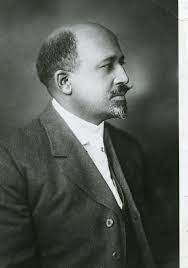Key Takeaways:
- W.E.B. Du Bois emphasized the significance of historical understanding in driving social change
- He believed that a thorough knowledge of history could illuminate the struggles and achievements of marginalized communities
- Du Bois’ historical writings, such as “Black Reconstruction in America,” provided a critical reevaluation of the Reconstruction Era
- His work encouraged a reexamination of the role of historical narratives in shaping contemporary social and political discourse
- Du Bois’ legacy reminds us of the transformative power of historical perspective in addressing contemporary social issues and promoting positive change
Transformative: History’s Power in Driving Social Change
W.E.B. Du Bois underscored the importance of comprehending history in propelling societal transformation. He highlighted the crucial role of historical awareness in advancing social progress. Du Bois stressed the significance of understanding the past in catalyzing change within communities. He emphasized the pivotal role of historical insight in fueling shifts in societal dynamics. Du Bois recognized the power of historical understanding in driving positive social evolution. He emphasized the value of historical comprehension in fostering meaningful societal change. Du Bois asserted the transformative potential of historical insight in shaping the course of social movements.

The Power of Historical Insight in Understanding Marginalized Communities
W.E.B. Du Bois was a proponent of the idea that a deep understanding of history could shed light on the challenges and triumphs of oppressed groups. He advocated for the power of historical insight to bring to light the trials and victories of marginalized societies. Du Bois upheld the belief that a comprehensive grasp of history could unveil the hardships and accomplishments of disenfranchised communities. He emphasized the significance of historical awareness in revealing the obstacles and successes of marginalized populations. Du Bois was a firm believer in the ability of historical knowledge to uncover the adversities and achievements of underprivileged communities. He stressed the importance of historical comprehension in unveiling the tribulations and victories of marginalized groups. Du Bois was a strong advocate for the idea that a profound understanding of history could illuminate the struggles and accomplishments of marginalized communities.
Video: W.E.B. Du Bois Conference - The Du Boisian Sociology and the Sociological Canon - Aldon Morris
Video: Marcus Garvey, W.E.B. Du Bois, and the Call for Black Unity (Round 4)
Video: Mark Bezos: A life lesson from a volunteer firefighter
The Impact of W.E.B. Du Bois’ Writings on the Reconstruction Era
W.E.B. Du Bois’ literary works, including “Black Reconstruction in America,” offered a vital reassessment of the Reconstruction period. His historical writings presented an essential reconsideration of the Reconstruction Era, offering a crucial reexamination of this pivotal time in American history. Du Bois’ scholarly works, particularly “Black Reconstruction in America,” delivered a fundamental reevaluation of the Reconstruction Era, providing a significant reappraisal of this crucial period. Du Bois’ impactful writings, notably “Black Reconstruction in America,” contributed to a substantial reexamination of the Reconstruction Era, offering a crucial reinterpretation of this transformative period in American history. His insightful writings, especially “Black Reconstruction in America,” facilitated a necessary rethinking of the Reconstruction Era, presenting a vital reconsideration of this formative time in American history. Du Bois’ influential works, particularly “Black Reconstruction in America,” sparked an essential reexamination of the Reconstruction Era, initiating a significant reassessment of this pivotal period in American history. W.E.B. Du Bois’ historical writings, such as “Black Reconstruction in America,” stimulated a critical reevaluation of the Reconstruction Era, prompting a vital reconsideration of this transformative period. .
The Influence of W.E.B. Du Bois’s Writings on Historical Narratives
W.E.B. Du Bois’s writings and studies prompted a reassessment of the significance of historical accounts in influencing current societal and governmental discussions. His work inspired a fresh look at the impact of past stories on shaping present-day social and political conversations. Through his research and publications, Du Bois urged a reconsideration of the influence of historical narratives on molding modern social and political dialogue. His writings advocated for a renewed examination of the role of historical accounts in shaping contemporary social and political discourse. Du Bois’s work prompted a reevaluation of the importance of historical narratives in influencing present-day societal and governmental discussions. His studies encouraged a new perspective on the impact of past stories in shaping current social and political conversations. Through his writings, Du Bois prompted a reexamination of the role of historical narratives in shaping contemporary social and political discourse.
The Enduring Influence of W.E.B. Du Bois
W.E.B. Du Bois’ enduring influence serves as a potent reminder of the profound impact of historical insight in confronting present-day societal challenges and fostering constructive progress. Du Bois’ lasting legacy underscores the influential role of understanding the past in tackling modern social dilemmas and advancing beneficial transformation. His enduring legacy highlights the vital significance of historical perspective in addressing current social issues and cultivating favorable development. Du Bois’ profound impact emphasizes the transformative potential of historical understanding in dealing with contemporary societal concerns and promoting constructive reform. His enduring influence underscores the pivotal role of historical insight in addressing present-day social issues and fostering positive change. Du Bois’ legacy serves as a powerful testament to the influential force of historical perspective in confronting contemporary societal challenges and nurturing beneficial advancement. His enduring impact accentuates the profound potential of historical understanding in addressing modern social issues and propelling constructive change. W.E.B. Du Bois.
The Talented Tenth: a Concept Championed by W.E.B. Du Bois

Frequently Asked Questions
Q: How did W.E.B. Du Bois contribute to driving social change through history?
Q: What were some of the key lessons that can be learned from W.E.B. Du Bois’s approach to social change?
A: W.E.B. Du Bois’s approach to social change teaches us the importance of education, political engagement, and the fight against racial inequality.
Q: In what ways did W.E.B. Du Bois’s work impact the civil rights movement and beyond?
A: W.E.B. Du Bois’s work had a significant impact on the civil rights movement and beyond by advocating for social and political equality for African Americans and co-founding the NAACP.
Q: What are some examples of W.E.B. Du Bois’s strategies for effecting social change?
A: Some examples of W.E.B. Du Bois’s strategies for effecting social change include advocating for civil rights, promoting education and intellectual advancement, and organizing political activism within African American communities.
Q: How can we apply the lessons from W.E.B. Du Bois’s work to contemporary efforts for social change?
A: We can apply the lessons from W.E.B. Du Bois’s work to contemporary efforts for social change by examining his advocacy for equal rights, education, and economic empowerment and integrating these principles into current social justice initiatives.
The Early Life and Education of W.E.B. Du Bois
William Edward Burghardt Du Bois, commonly known as W.E.B. Du Bois, was born on February 23, 1868, in Great Barrington, Massachusetts. Raised in a predominantly white community, Du Bois grew up to become a prominent African-American sociologist, historian, civil rights activist, and author. His academic prowess and intellectual curiosity were evident from a young age, and he secured a scholarship to attend Fisk University. Later, he continued his studies at Harvard University, where he became the first African American to earn a doctorate. Du Bois’s experiences as a scholar and activist during a time of intense racial discrimination and segregation in the United States profoundly shaped his perspective and fueled his commitment to addressing social injustices through education and activism.
The Founding of NAACP and The Souls of Black Folk
In 1909, W.E.B. Du Bois played a pivotal role in the founding of the National Association for the Advancement of Colored People (NAACP), an organization dedicated to combating racial discrimination and promoting civil rights for African Americans. As the editor of the NAACP’s magazine, The Crisis, Du Bois used his platform to advocate for racial equality and social justice. One of his most influential works, “”The Souls of Black Folk,”” published in 1903, offered a powerful critique of the racial divide in America and the impact of racism on the African American community. Through his writing and activism, Du Bois sought to challenge the prevailing narratives of white supremacy and uplift the voices of marginalized communities, leaving an indelible mark on the civil rights movement.
Du Bois’s International Perspective and Pan-Africanism
W.E.B. Du Bois’s influence extended beyond the borders of the United States, as he embraced an internationalist perspective on social and political issues. He actively engaged in global conversations on race, imperialism, and colonialism, advocating for the rights and liberation of people of African descent worldwide. Du Bois’s commitment to Pan-Africanism, the belief in the unity and solidarity of people of African descent, led him to organize the Pan-African Congresses, which aimed to address the challenges faced by African and African-descended people globally. His efforts to forge connections between different communities and advance the cause of racial equality on a global scale exemplify his enduring impact on the fight against oppression and discrimination.
Du Bois’s Legacy and Enduring Influence
W.E.B. Du Bois’s legacy as a scholar, activist, and intellectual giant continues to resonate in the realms of academia, social justice, and civil rights activism. His pioneering research on the social and economic conditions of African Americans, coupled with his unwavering commitment to challenging racial inequality, has left an indelible mark on the study of race and ethnicity. Du Bois’s analytical insights into the intersections of race, class, and power have influenced generations of scholars and activists, inspiring them to confront systemic injustices and advocate for marginalized communities. His dedication to education and his belief in the power of knowledge as a tool for social change serve as enduring lessons in the ongoing struggle for equality and justice.
Conclusion
W.E.B. Du Bois’s life and work stand as a testament to the transformative power of history in driving social change. His relentless pursuit of racial equality, intellectual contributions, and advocacy for civil rights continue to inspire individuals and movements committed to challenging oppression and discrimination. Through his scholarship, activism, and global perspective, Du Bois exemplified the profound impact that an individual can have in shaping the course of history and advancing the cause of social justice. As we reflect on his enduring legacy, we are reminded of the imperative to continue the struggle for equality and justice, drawing inspiration from Du Bois’s unwavering commitment to the pursuit of a more just and equitable society.
